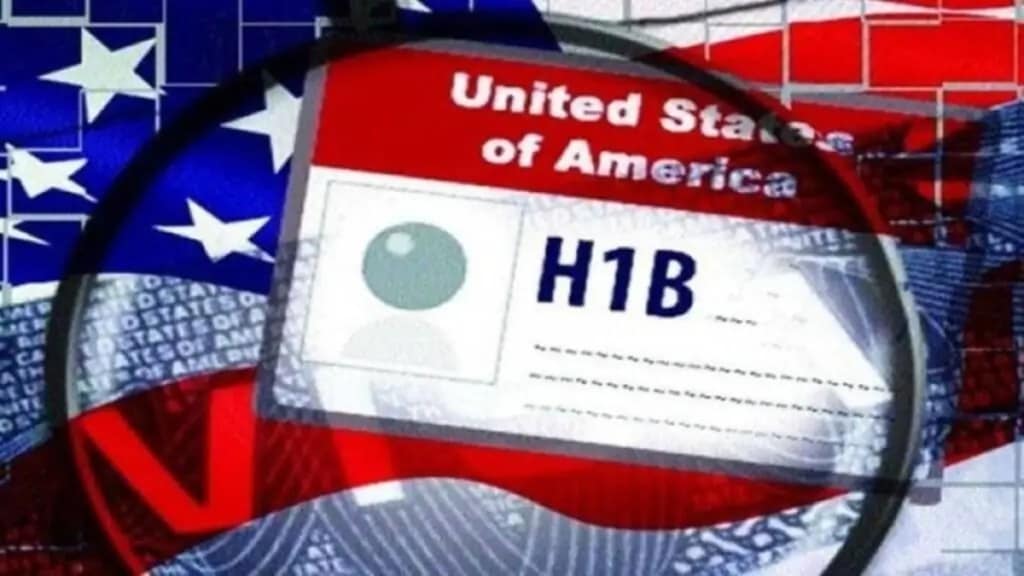Recently, three Indians with H-1B visas were denied admission into the United States at the port of entry. The reason cited for the denial and revocation of the US visa was an extended stay in India. US authorities canceled the H-1B visas, and the individuals were instructed to return home, as they had overstayed in their home country for more than 60 days.
But, is there a 60-day grace period for H-1B visa holders? “No, just being outside the U.S. for more than 60 days doesn’t automatically cancel your H-1B visa. What matters is whether you’re still actively employed. If your employer continues to keep you on payroll and hasn’t withdrawn your petition with USCIS, you’re still in valid status, even if you’re abroad,” says Dan Nandan, CEO, Immisupport.com.
This means, even if an H-1B visa holder stays more than 60 days, no rule allows US authorities to cancel the visa.
“There is no explicit, codified rule in U.S. immigration law that automatically cancels an H-1B visa for staying outside the U.S. for more than 60 days,” says Dmitry Litvinov, CEO and Founder of Dreem, an immigration consultant.
However, according to how the Trump administration’s crackdown on non-immigrants is unfolding, US officials are taking a hard line with them.
“These incidents suggest that U.S. Customs and Border Protection (CBP) officers exercise significant discretion in assessing whether an H-1B visa holder’s extended absence indicates an abandonment of their U.S. employment or intent to maintain their visa status,” adds Dmitry.
If you are not in the US and your H-1B visa gets cancelled at the port of entry or during your stay in the home country, it could be due to employment reasons and not overstays.
“The 60-day reference usually comes up in the context of a grace period after employment ends, not for someone who’s simply out of the country.
Now, if you’ve been unpaid for over 60 days with no official leave of absence or if the employer stops considering you an active employee, then it can raise red flags. USCIS could treat that as abandonment of H-1B status, especially if they find out during a site visit or petition review. But again, that’s about employment status, not physical presence abroad,” adds Dan.
There is a 60-day grace period rule under the H-1B visa program but not related to the overstay period. According to the rules, if a nonimmigrant worker’s employment ends, either voluntarily or involuntarily, they and their dependents need to depart the United States within 60 days, or when their authorized validity period ends, whichever is shorter.
However, if they have filed an application for a change of nonimmigrant status or filed an application for adjustment of status, within the 60-day grace period, the nonimmigrant’s period of authorized stay in the United States can exceed 60 days, even if they lose their previous nonimmigrant status.
The 60-day grace period allows nonimmigrant workers to retain their status or request a change, allowing them to continue their job search within the US even if the grace period and current status expire, as long as a timely, nonfrivolous application is filed.
So, under what circumstances can US authorities cancel your H-1B visa? “The visa itself can be cancelled or revoked in a few scenarios: if your employer formally withdraws the petition, if there’s any violation of H-1B conditions (like unauthorized work), or if there was fraud or misrepresentation at any stage.
Also, if you overstay in the U.S. after your H-1B ends and don’t switch to another legal status or leave the country, that can lead to cancellation, too. But if you’re outside the U.S., still employed, and nothing’s been withdrawn, you’re generally fine,” says Dan.
Varun Singh, MD, XIPHIAS Immigration says, “In today’s volatile job market, many H-1B professionals are caught off-guard by the hard 60-day clock. What was once seen as a buffer period is now a legal tripwire. Missing this window not only risks visa cancellation, but can also derail long-term U.S. plans, including green card aspirations. At XIPHIAS, we’re seeing a sharp rise in urgent change-of-status and visa transfer requests — underscoring the need for faster legal intervention and real-time compliance awareness.”

